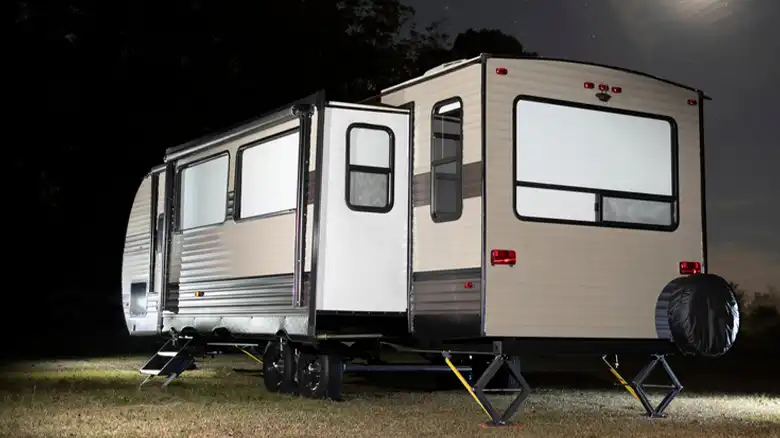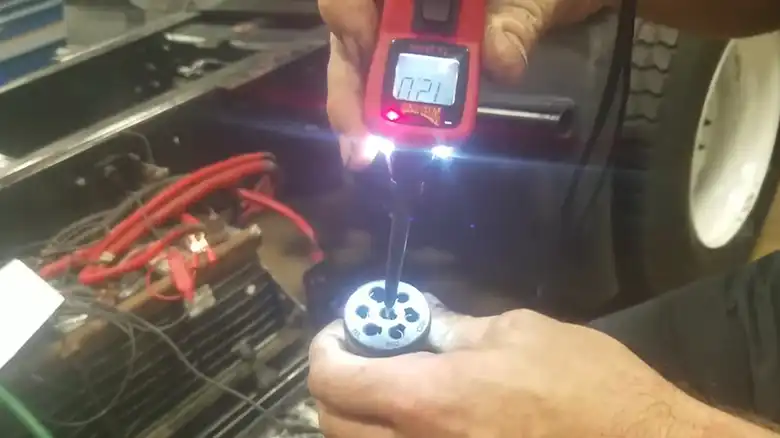Being an RV owner is not only a passion but also a responsibility. When you‘re an RVer, you rely on your vehicle’s propane system to power essential appliances for cooking, heating, and refrigeration when off the grid. However, like any complex system, RV propane systems can develop issues. In my experience as an RV repair technician, several common problems can often be solved with straightforward solutions. Being able to diagnose and fix minor propane system issues can save time and money.
This article explores the most typical RV propane problems RVers face and how to get your system up and running again. So, take a few minutes and enjoy the rest.

Understanding RV Propane Systems
First of all, it’s helpful to understand what components make up an RV’s propane system and how they work together to power appliances. Most systems contain tanks, regulators, valves, distribution lines, and appliances like furnaces, stoves, and refrigerators. The tanks store pressurized liquid propane which passes through regulators to maintain the proper pressure and flow rate. Distribution lines and valves route propane to appliances, where it is ignited by a pilot light or electronic ignition to provide heat or refrigeration. Sensors monitor pressure and leaks to automatically shut off flow if issues arise. Keeping all components in good working order is essential for safe operation.
Common RV Propane Problems and Their Fixes
While RV propane systems are designed to operate reliably for long periods, wear and tear over months or years on the road can take their toll. However, many common issues can be identified and fixed with basic troubleshooting and maintenance. Being able to diagnose and repair minor problems yourself will save the hassle and expense of professional service calls. Some of the most frequent problems include –
Low Fuel Levels and How to Prevent Running Out
An RV’s propane tank can run empty faster than expected if there is a leak or high usage. Tanks deplete at different rates depending on appliance use and outside temperature. Monitoring fuel gauges and refilling tanks early prevents outages. Leak checks can identify if fuel loss exceeds normal consumption. Professional repairs may be needed for large, difficult-to-locate leaks.
Clearing Blocked Propane Lines and Fittings
Dirt, debris, spider webs, and even insect nests are common culprits for blocked propane distribution lines and appliance fittings. Periodically inspect key connection points and clear out any obstructions, especially before seasonal trips or leaving an RV idle for months. Pay particular attention to potential clogs at regulators, valves, pilot light orifices, appliance burners, and flexible hoses.
Fixing Faulty Propane Regulators
High pressure from RV propane tanks must be stepped down to safe levels for appliances. However, regulators contain moving parts and seals that wear out over 5-10 years. Old regulators may fail to properly regulate pressure, providing too little or too much propane flow. This can prevent appliances from lighting, result in low flames or heat output, or create potential safety hazards. Replacing aging regulators ensures reliable pressure control.
Troubleshooting Appliances That Won’t Light
Stoves, furnaces and other appliances not igniting typically stem from one or more underlying issues: empty propane tanks, closed valves blocking fuel flow, tripped excess flow safety devices, dirty pilot lights/electrodes, or broken igniters. Methodically checking and fixing each potential cause is key to getting appliances lit again. Start by opening valves and resetting safety devices before cleaning pilot light components. Replace broken igniters or other worn parts if simple steps don’t solve the lighting problem.
Dealing with Propane Leaks
Leaks pose a serious explosion and poisoning hazards from propane buildup and should be addressed immediately by trained professionals. Detect leaks by their distinctive rotten egg odor or apply a leak check solution to connections to look for bubbles. Even small leaks indicate replacing damaged hoses, tightening fittings, or servicing regulators and valves. Ensure all repairs meet RV propane system codes and standards before relighting appliances.
Solving RV Refrigerator Propane Issues
Propane refrigerators contain many of the same combustion components found in furnaces and stoves. The steps for troubleshooting outages overlap with lighting issues for other appliances. Begin by confirming sufficient propane volume in tanks, then check distribution lines and valves for any blockages. Test associated fuses, wiring, thermostats, control boards, and igniters to pinpoint fault sources. Where repairs are needed, use RV refrigerator manufacturer-authorized parts to ensure cooling system integrity.
Furnace Problems: Why It’s Blowing Cold Air
A furnace blowing cold air instead of producing warm airflow generally indicates one of several problems. Insufficient propane, either from empty tanks or closed valves, should be addressed first before moving to other system checks. Dirty filters block airflow and cause furnaces to cycle repeatedly without reaching desired temperatures. Faulty thermostats and blower motors can also prevent normal operation. Only after ruling out fuel supply issues and clogs should furnace internal components and heat exchangers be inspected for cracks or damage requiring professional service.
Addressing Gas Safety Sensor Faults
Modern RV propane appliances integrate a variety of sensors that automatically shut off gas flow in unsafe conditions. Fault codes illuminate when automatic shutoffs activate. Most sensor issues stem from dust/dirt buildup interfering with operation rather than actual sensor failures. Carefully cleaning flame sensors, thermocouples, pressure switches, and other safety devices often clears codes and restores normal functioning. Replacement may be needed for cracked sensor probes or corroded wiring beyond cleaning.
RV Propane System Maintenance Tips for Long-Term Performance
While many RV propane issues arise unexpectedly from worn components or debris clogs, proactive maintenance helps minimize system problems at inopportune times. Developing good inspection habits allows you to catch small issues before they become big headaches on the road. Useful preventative maintenance steps include –
a) Thoroughly inspecting propane appliances and lines before trips each season. Tighten fittings, check for leaks, clean burners, and orifices, etc.
b) Replacing older propane regulators and hoses that are approaching 10 years old before they fail. Use only certified RV propane-rated parts meeting safety standards.
c) Covering exterior vents with mesh screens when storing RVs to prevent insect nests from blocking lines.
d) Having qualified RV propane technicians do more complex diagnostics and repairs involving tanks, valves, and detectors whenever possible for safety.
Staying on top of propane system maintenance goes a long way to catching potential problems early and minimizing road trip disruptions.
Additional Propane Safety Tips Every RVer Should Know
While this guide focuses specifically on troubleshooting common RV propane system problems, safety should always be the top priority when dealing with propane. A few extra tips to keep in mind include –
a) Treat propane leaks extremely seriously to reduce fire/explosion risk – evacuate the RV immediately if a large leak is detected.
b) Follow proper safety procedures when inspecting systems and performing repairs to avoid health hazards.
c) Install propane gas and CO detectors to alert occupants of dangerous leaks or combustion issues.
d) Carefully review appliance manufacturer manuals for recommended installation, operation, and maintenance.
Exercising caution is essential when working with propane to protect yourself, your passengers, and your investment. Identifying and addressing problems promptly reduces safety risks as well as costly repairs down the road.
Understanding RV Propane System Laws and Regulations
In addition to following manufacturer guidelines and prudent safety practices, it’s important for RV owners to comply with relevant propane system laws and regulations. Rules vary somewhat by location, but common legal requirements include –
- Passing periodic safety inspections of tanks, valves, regulators, piping, and appliances certified by qualified propane professionals.
- Displaying updated inspection stickers and maintaining inspection documentation to confirm compliance.
- Properly labeling all propane system components like tanks, valves, and distribution lines to industry standards.
- Correctly containing propane cylinders in separate sealed compartments ventilated to the exterior.
- Meeting capacity limits, filing paperwork, and exercising caution when transporting spare propane tanks.
- Using only certified RV propane technicians for repairs and replacements to adhere to codes.
While burdensome at times, propane safety regulations aim to protect RVers by ensuring systems meet technical standards. Staying up-to-date on requirements, inspection schedules, and compliance steps avoids legal issues that could result in fines or impounding vehicles.
Frequently Asked Questions About RV Propane Systems
How often should RV propane systems be inspected?
A: Industry experts recommend annual inspections by certified professionals before each camping season. Monthly visual checks by owners to identify potential leaks or damage is also wise.
Can I repair propane appliances and components myself?
A: Minor adjustments and line cleans can be DIY, but repairs to tanks, valves, regulators, and appliances should be left to qualified RV propane technicians. Improper service often violates codes.
What should I do if I smell propane or suspect a major leak in my RV?
A: Evacuate passengers immediately, then turn off valves at the tank before the leak source can be addressed by professionals. Never ignore the rotten egg scent signaling propane leaks.
Why do my propane appliances produce less heat/cooling over time?
A: Decreased output from aging appliances likely indicates blocked burner orifices or heat exchangers requiring professional cleaning and repairs for optimal operation.
Where can I fill my RV’s propane tanks while traveling?
A: Many gas stations, camping supply stores, and RV dealerships have propane filling stations. Apps like RV LIFE Campground Reviews can also help locate nearby propane services.
Wrapping It Up
RV propane systems provide the cooking, heating, and refrigeration essentials RVers depend on. However, like any complex system, they can suffer wear, debris clogs, and part failures over years of use. Catching and repairing issues promptly improves safety and saves money in the long run. Equipped with a basic understanding of how systems work and potential problem points, RV owners can troubleshoot and resolve many common propane issues on their own with straightforward fixes. Maintaining your system properly and addressing problems as early as possible ensures peak performance season after season.


